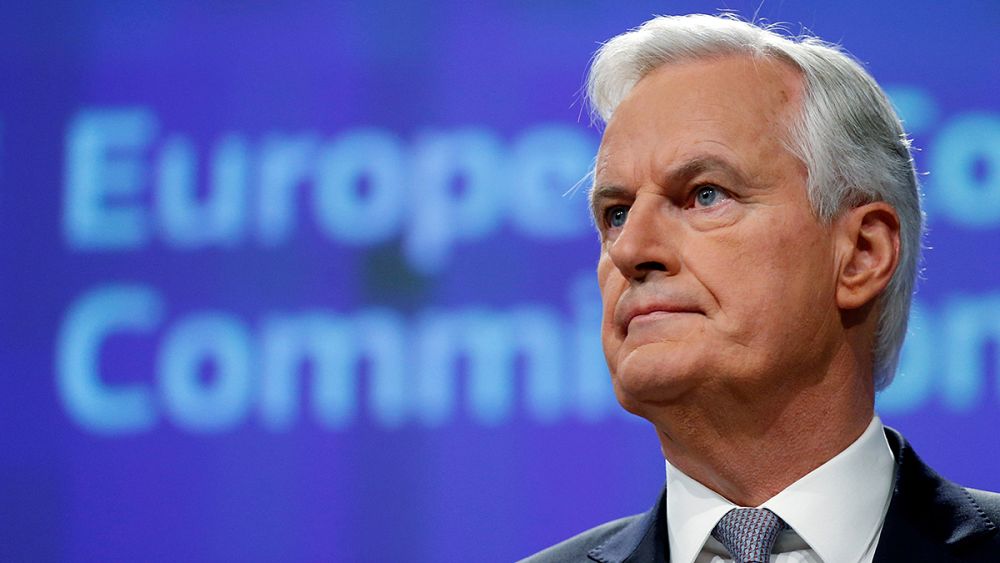Brexit talks have suffered their worst setback yet, with the third week of talks in Brussels ending in open frustration as the EU’s top negotiator Michel Barnier politely accused the British Government of welshing on its earlier acknowledgment that it would have to pay a “divorce settlement” to leave the union.
“It’s clear that the UK doesn’t feel legally obliged to honour its obligations,” Barnier told a testy press conference after four days of Brexit talks which seem to have not just failed to make major progress but gone backwards on the key issue of Britain’s divorce bill.
 “In July the UK recognised that it has obligations beyond the Brexit date but this week the UK explained that these obligations will be limited to the last payment to the EU project before departure.”
“In July the UK recognised that it has obligations beyond the Brexit date but this week the UK explained that these obligations will be limited to the last payment to the EU project before departure.”
His British counterpart David Davis told reporters that his team had a duty to British taxpayers to tightly scrutinise any demands on the British Treasury but it was clear that after three rounds of talks the two sides have not even agreed on the concept of how to work out a divorce bill, let alone come up with any figure for what the bill might be.
Davis said Britain always met its obligations but “those obligations have got to be well specified, they’ve got to be real”. The UK has argued that many of the EU’s demands have no legal basis, without setting out what Westminster thinks it is liable for.
And with the divorce bill one of the crucial “separation” issues that Brussels insists must be settled before the talks can move on to forward-looking issues such as future trade relations, Barnier made it clear that he is unlikely to report back to an October summit of the 27 remaining EU members that there has been enough progress to move onto the trade issues Britain desperately wants to discuss.
There are just two more rounds of Brexit talks to go before that summit, and while Davis insisted there had been progress in some areas during this week’s talks Barnier played down any advances and instead expressed exasperation at what he called a “nostalgic” British desire to continue to reap the benefits of EU membership after it leaves the Union.
“Simply Impossible”
 The mood at the press conference suggested that the two sides have been talking past each other are on parallel negotiating tracks rather than narrowing down their differences.
The mood at the press conference suggested that the two sides have been talking past each other are on parallel negotiating tracks rather than narrowing down their differences.
Barnier said some of the recent position papers issued by the British government showed “a sort of nostalgia in the form of specific requests which would amount to continuing to enjoy the benefits of the single market and EU membership without actually being part of it.”
“The UK wants to take back control, wants to adopt its own standards and regulations, but it also wants to have these standards recognised automatically in the EU. This is simply impossible. You cannot be outside the single market and shape its legal order.”
“The single market, the EU capacity to regulate, to supervise, to enforce our laws, must not and will not be undermined by Brexit.”
In an obvious message to the British government, Barnier said anyone who thought they could divide the EU on Brexit was “wasting their time.”
Barnier declared that there had been some “fruitful discussion” about the Irish border but “no decisive progress” during the latest four days of negotiations. Davis tried to put a more positive light on things, insisting there had been some “concrete progress” between the sides.– although, given the chance to elaborate on what they were, he failed to do so.
“I mean, Michel referred to one, but I think there’s been more than that,” he said.
Davis showed his own frustration at the Europeans’ refusal to bend the rules on Brexit talks, saying that over the past week the British approach had been “substantially more flexible and pragmatic than that of the EU”. Instead of concentrating on the three “threshold” areas – the divorce bill, the rights of expat citizens and the Irish border – the British have in recent weeks gone ahead and published a raft of position papers on other topics they wish to deal with.
Barnier pointedly referred to British Home Office letters that were mistakenly sent out to nearly 100 European citizens, living and working in Britain. That exercise was later rescinded amid apologies from the British Government but Barnier said it showed Brussels believed the European Court of Justice had to continue guaranteeing the rights of the 3.5 million EU citizens in the UK.
Barnier said the EU delegation was prepared to “step up and intensify the rhythm of the negotiations”, though he dismissed suggestions that talks could become more frequent.
by Bob Graham
The post Brexit: Talks Actually Go Backwards appeared first on Felix Magazine.
No comments:
Post a Comment